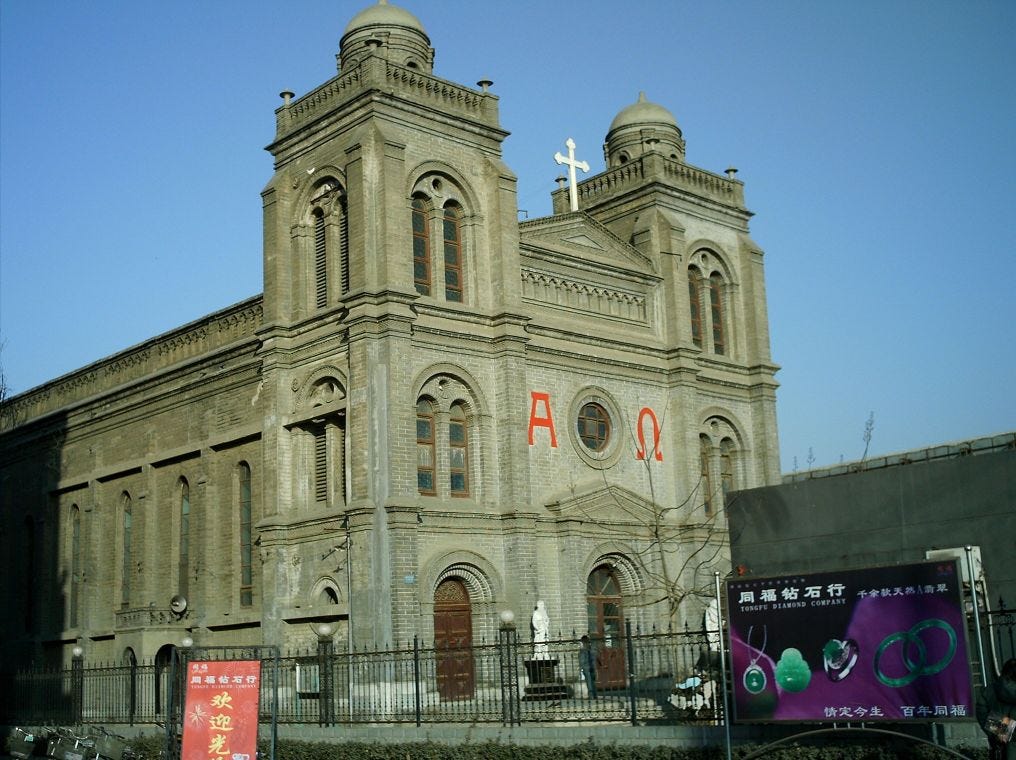
A diocese in China is threatening to withhold the sacraments from Catholics who refuse to accept the registration of clergy with the Communist Party-controlled Catholic association, according to new reports.
Bishop Francis An Shuxin of the Diocese of Baoding issued a pastoral letter July 15 stating that all Catholic clergy are required to register with the Chinese Patriotic Catholic Association, according to a report from Asia News.
Bishop An’s letter reportedly addresses the issue of local Catholics rejecting pastors who have registered with the CPCA, ordering that Catholics who refuse to accept CPCA registration by clergy be denied the sacraments.
The bishop added that unregistered clergy of the formerly underground Church will be treated as criminals by the civil authorities, and see their support from Rome withdrawn.
After the 2018 Vatican-China deal granted the CCP a role in the appointment of bishops for the mainland, the Secretariat of State issued unsigned guidance for Chinese clergy in June 2019, encouraging priests to register with the state-sponsored CPCA.
The secretariat’s guidance acknowledged that "many pastors remain deeply disturbed [at] the modality of such registration," and that registration with the CPCA “requires, almost invariably, the signing of a document in which, notwithstanding the commitment assumed by the Chinese authorities to respect also Catholic doctrine, one must declare acceptance, among other things, of the principle of independence, autonomy and self-administration of the Church in China."
The secretariat suggested that clergy in China make a reservation of conscience when registering, affirming CPCA requirements only so far as it is “faithful to the principles of Catholic doctrine."
"At the same time, the Holy See understands and respects the choice of those who, in conscience, decide that they are unable to register under the current conditions," the Vatican said.
But clergy who have refused to register with the CPCA have come under continued harassment, with bishops and priests subject to arrest and detention. Communist authorities, especially at the regional level, have also continued to offer bounties for information about underground Catholic communities and clergy, and bulldozed church buildings.
The Chinese government issued last year new rules on the registration and regulation of all religious clergy in the country. Despite the Vatican-China deal, it did not recognize a role for the Holy See in the appointment of bishops on the mainland, saying episcopal appointments were a matter for the Chinese bishops’ conference and the Communist Party.
An was ordained a bishop for the underground Church in 1993 and was arrested by Chinese state authorities in 1997. He was held in custody for nearly 10 years.
In 2007 he was named coadjutor Bishop of Baoding and later joined the CPCA, becoming diocesan bishop in 2010.
The bishop’s decision to deny the sacraments to Catholics who refuse to accept the policy of state registration raises a number of canonical questions.
It is unclear on what canonical basis could make such a provision. It is also unclear if the order applies only to those Catholics who reject clergy who have registered with the CPCA, or if it applies to lay Catholics who themselves refuse to register with the Communist Party-controlled association.
But Vatican guidance in recent years has pushed back on restricting the sacraments or other Church services because of a conscientious objection to registering as a Catholic with civil governments.
For several years, the bishops of Germany have sought to deny the sacraments to those who refused to register as Catholics with the state, or who deregistered as Catholics, in order to avoid paying the Church tax, worth billions of euros a year to the Church in Germany. In response, the Vatican has repeatedly stated that de-registration to avoid a civil tax does not constitute breaking with the faith or the Church and cannot be punished with the denial of the sacraments.
Bishop An’s action in Baoding comes just months before the Vatican-China deal is up for renewal. The agreement, the full terms of which have not been published, has been renewed on a rolling two year basis and is set for re-approval in October.
Several recent episcopal appointments to mainland dioceses have been announced by the CPCA, after the consecration of the bishop has already taken place, without the Vatican announcing or confirming the appointment until after the fact with some officials reporting that the Holy See was unaware of the appointments until after the fact.
In recent months, Vatican officials have offered in creakingly blunt admissions of the deal’s limitations, and the lack of progress in securing episcopal appointments for the mainland, which was the central purpose of the deal.
But for his part, Pope Francis said in July that while the Vatican-China deal was “not ideal” it “is moving well” and appeared to commit the Holy See to renewing the agreement for another two years.
“Diplomacy is the art of the possible,” Francis said, “and of doing things to make the possible become a reality."











Reasons for withholding sacraments: not joining the communist party, not paying the church tax, wanting the traditional Latin mass.
Not reasons for withholding sacraments: advocating for abortion.
When I am tempted into mortal sin, the ridiculous priorities of the current hierarchies make me wonder what is the point in resisting.
I think Pope Francis' warning applies to this bishop: "When the Church loses its pastoral nature, when a bishop loses his pastoral nature, it causes a political problem."